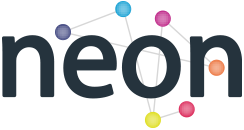Addressing Differential Outcomes for BME Learners Meeting
NEON Working Groups
Date
29/10/2020
Time
2:00 pm - 4:00 pm
The meeting provides the Working Group a space for addressing the challenges of establishing better outcomes for BME learners in Higher Education, and will be exploring innovative approaches to developing good practice in this area by way of practical discussions, research/case study analysis, and peer support.
This working group is organised by the University of Kingston.
The meeting will be held online on Thursday 29th October from 2pm to 4pm.
Please register to receive the log in details and to be able to access the meeting.
Agenda
What does Racial Equality in HE Look like in Practice?: White Allyship training, Race Equality Charter Mark and Covid-19.
2.00-2.10 Welcome and Introductions (Karen Lipsedge, Kingston University, Chair)
2.10-2.25: Dr Gurnam Singh, Coventry University
Title ‘Eradicating Differential Outcomes for BAME students: Developing simple solutions to a complex problem’.
Summary: Over the past 10 years the necessity to address what has become problematically termed the ‘BAME attainment gap’, has risen up the policy agenda. Across the HE sector, as a consequence of pressure from below, in the form of student and staff activism, and from above, in the form of ‘access and participation plans’ required by the Office for Students, institutions are desperate to find practical solutions to close the gap. At the same time, in the context of the Black Lives Matter movement and growing demands for decolonising the university, we have powerful arguments problematising that the whole framing of debates about the racism in HE as a ‘problem’ associated with particular groups of students rather than institutional practices and white supremacist mind sets. This presentation will try to offer a way to navigate what is a complex dynamic politicised terrain with some practical suggestions.
2.25-2.40 Joanna MacDonnell, University of Brighton
Title: White Allyship; being an effective ally for people of colour
Summary: In this presentation Jo will reflect on her own experience of being a White Ally, particularly in an Higher Education context, and consider the difference between being an effective White Ally and being a White Saviour. The presentation will also consider the wealth of training and resources available to support attendees wherever they are on their own journeys to White Allyship and enable attendees to think about how they can make a difference regardless of their role and remit within their institutions.
2.40-2.55 Professor Bhavik Patel, University of Brighton
Title: Race Equality Charter: Benefits and challenges of leveraging its full value.
Summary: This presentation will focus on how far we have come along since the launch of the race equality charter. Emphasis will be given on the potential benefits of engaging with the race equality charter and some of the challenges you may face when engaging with the application process. Additionally, this presentation will also focus the challenges that may occur when trying to leverage its full value to the BAME academic community when an award is received.
3.00-3.10 Break
3.10-3.25 Breakout groups
In view of the limited time for these discussions, please can each breakout group focus on one of the topics covered by our three presenters. Regardless of the topic you choose, please discuss, and make notes in response to the following questions. Please also select one member of your group to feedback key points covered in your discussions
- What do you think are the key points that came out of the selected presentation?
- Share examples of good practice and the challenges and/or barriers to following the model proposed by the presenter at your HEIs. For instance, if your focus topic is white allyship training, members of your group should share examples of good practice if their HEI is undertaking similar training. You should also discuss any challenges and/or barriers to setting up this type of training, such as lack of leadership buy-in, staff resistance, insufficient resources for internal and/or external training providers.
- Any questions you may have for the presenter about the presentation and/or topic.
3.25-3.55pm: Feedback and Q&A
3.55-4pm: AOB and next meeting
